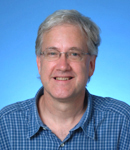Press release by Mark Derewicz for UNC Hahn Lab paper published online in Nature Chemical Biology March 9, 2014.

CHAPEL HILL, N.C. – Researchers at the UNC School of Medicine have devised a new biochemical technique that will allow them and other scientists to delve much deeper than ever before into the specific cellular circuitry that keeps us healthy or causes disease.
The method – developed in the lab of Klaus Hahn, PhD, and described in the journal Nature Chemical Biology – helps researchers study how specific proteins called kinases interact to trigger a specific cellular behavior, such as how a cell moves. These kinase interactions are extraordinarily complex, and their interactions remain largely unknown. But researchers do know that kinases are crucial operators in disease.
“I dare you to find a disease in which kinases are not involved,” said Hahn, senior author of the study and the Thurman Distinguished Professor of Pharmacology. “These kinase processes have been very difficult to fully understand, but we all know they’re very important.”
For years, scientists have been able to tweak a kinase to see what would happen – such as causing cell death or cell movement or cellular signaling. But these experiments can only scratch the surface when it comes to understanding the cascade of kinase interactions that lead to a cellular behavior. Nor have these experiments been able to show the timing of rapid events. That’s important, Hahn said, because when a protein is activated has a lot to do with how the cell will respond. Drug developers haven’t been able to take this into account, which is likely one reason why some drugs that target proteins don’t work as well as scientists had hoped.
“Imagine you’re an electrician looking at a circuit board, and all you can do is plug something in and watch all the circuits light up, but you have no idea how the board really works,” Hahn said. “What you’d like to do is put a probe on one component, turn it on, and see what immediately happens to the circuit components next to that one component.”
If you could do this with all the circuit components, then this would allow you to learn how the circuitry is built.
“We are now doing this in live cells and seeing what happens,” said Hahn, a member of the UNC Lineberger Comprehensive Cancer Center. “Kinases are the circuit components. And we can now activate just one kinase and study how it interacts with just one other molecule in real time.”
(~An exerp from UNCHC and UNCSOM News article by Mark Derewicz; March 9, 2014. Read the full article here.)
Read the full journal article online in Nature Chemical Biology, March 9, 2014, doi:10.1038/nchembio.1477
Abstract from the journal article
We describe an approach to selectively activate a kinase in a specific protein complex or at a specific subcellular location within living cells and within minutes. This reveals the effects of specific kinase pathways without time for genetic compensation. The new technique, dubbed rapamycin-regulated targeted activation of pathways (RapRTAP), was used to dissect the role of Src kinase interactions with FAK and p130Cas in cell motility and morphodynamics. The overall effects of Srcactivation on cell morphology and adhesion dynamics were first quantified, without restricting effector access. Subsets of Src-induced behaviors were then attributed to specific interactions between Src and the two downstream proteins. Activation of Src in the cytoplasm versus at the cell membrane also produced distinct phenotypes. The conserved nature of the kinase site modified for RapRTAP indicates that the technique can be applied to many kinases.
Senior author on the paper is Klaus Hahn, Thurman Professor of Pharmacology with a joint appointment in the UNC Eshelman School of Pharmacy. First author on the paper is Andrei Karginov, Ph.D., now an Assistant Professor of Pharmacology at the University of Illinois-Chicago. Other authors include UNC Research Assistant Professor, Dennis Tsygankov,Ph.D., and UNC Professor of Pharmacology, Timothy Elston, PhD.
